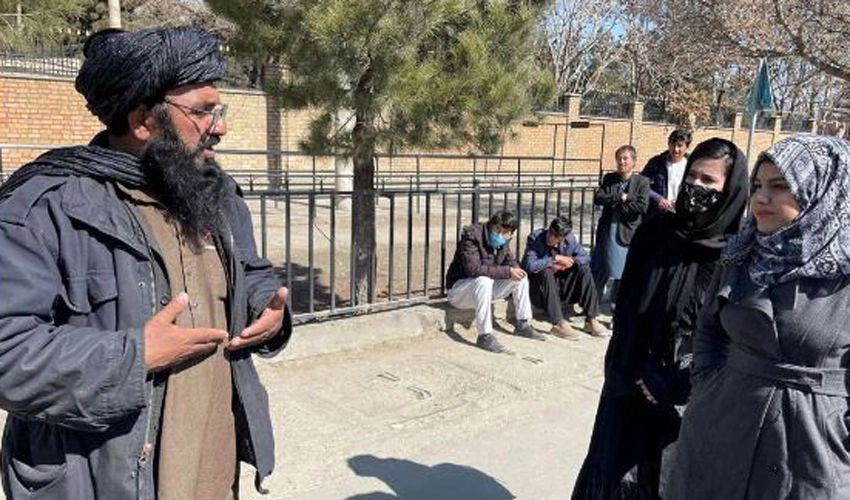A year later, a Ukrainian nuclear plant became a Russian ‘military base’
Introduction
In a shocking turn of events, a year after the annexation of Crimea by Russia, the Zaporizhzhia Nuclear Power Plant, one of Ukraine’s largest nuclear facilities, was mysteriously transformed into what many are calling a Russian “military base.” This incident has escalated geopolitical tensions, raised concerns about nuclear proliferation and safety, and triggered international reactions and responses. In this article, we will delve into the events leading up to this unexpected development, the implications it carries, and the efforts made to address the situation.
Background of the Zaporizhzhia Nuclear Power Plant
The Zaporizhzhia Nuclear Power Plant, located in Enerhodar, Ukraine, has long been a crucial part of the country’s energy infrastructure. As one of the largest nuclear power plants in Europe, it played a significant role in meeting Ukraine’s electricity demands. The plant consisted of several reactors, each capable of producing a substantial amount of electricity through controlled nuclear fission.
The Annexation of Crimea and Tensions with Russia
The political landscape between Ukraine and Russia was severely strained when Russia annexed Crimea in a controversial move in the previous year. The annexation was widely condemned by the international community, leading to sanctions against Russia. The event also fueled existing tensions between the two neighboring countries and raised concerns about potential future conflicts.
The Incident and Takeover
4.1 The Cyberattack
The first signs of trouble emerged when the Zaporizhzhia Nuclear Power Plant experienced a sophisticated cyberattack that disrupted its normal operations. The attack raised alarm bells globally, as the sabotage of a nuclear facility could have catastrophic consequences.
4.2 Seizing Control
Amidst the chaos caused by the cyberattack, a well-coordinated paramilitary group with alleged ties to Russia managed to infiltrate the nuclear plant’s security measures. Reports indicate that they took control of critical systems, effectively rendering the plant inoperable by its Ukrainian operators.
International Response and Reactions
The international community responded swiftly and sternly to this alarming incident. Many countries condemned the actions of the paramilitary group and demanded an immediate resolution to the crisis. Emergency meetings were held in international forums, with countries seeking ways to de-escalate the situation and restore control of the nuclear plant to Ukrainian authorities.
The Impact on Energy Security
With the Zaporizhzhia Nuclear Power Plant now under the control of an unauthorized group, concerns over energy security in the region reached a new high. The disruption in power generation from the plant had implications not only for Ukraine but also for neighboring countries that relied on the stable supply of electricity it provided.
Escalation of Geopolitical Tensions
The incident at the nuclear plant added fuel to the already smoldering geopolitical tensions between Ukraine and Russia. Accusations and counter-accusations flew between the two nations, further straining diplomatic relations and regional stability.
Safety Concerns and Nuclear Proliferation
The takeover of a nuclear power plant raised international alarm over safety and nuclear proliferation. The unauthorized access to sensitive nuclear infrastructure highlighted vulnerabilities in nuclear facilities and the potential for nuclear materials to fall into the wrong hands.
Efforts for De-escalation and Resolution
In the wake of the crisis, diplomatic efforts intensified to find a peaceful resolution. Mediators from various countries engaged in talks with both Ukraine and Russia to ease tensions and negotiate a resolution that would restore control of the nuclear plant to Ukrainian authorities.
Lessons Learned and Future Implications
This incident served as a wake-up call for the international community to reassess the security of critical infrastructure, especially nuclear facilities. The events surrounding the Zaporizhzhia Nuclear Power Plant underscored the need for improved cybersecurity measures and increased cooperation among nations to prevent such incidents in the future.
Conclusion
The transformation of the Zaporizhzhia Nuclear Power Plant into a Russian ‘military base’ a year after the annexation of Crimea has had far-reaching consequences. It heightened geopolitical tensions, raised concerns about nuclear safety, and highlighted the need for international cooperation in safeguarding critical infrastructure. The incident serves as a stark reminder of the complex and fragile nature of global security.
FAQs
Q1: What was the motivation behind Russia’s takeover of the nuclear plant?
The exact motivation behind Russia’s takeover of the nuclear plant remains a subject of speculation. However, it is widely believed to be a combination of geopolitical interests and sending a strong message to Ukraine and the international community.
Q2: How did the international community respond to the incident?
The international community responded swiftly and sternly to the incident, condemning the actions of the paramilitary group and calling for a peaceful resolution to the crisis. Emergency meetings were held, and diplomatic efforts were intensified to find a resolution.
Q3: What measures were taken to ensure safety after the takeover?
After the takeover, security measures around critical infrastructure were reviewed and strengthened. International agencies also conducted inspections to assess the safety and security of the nuclear plant under the new control.

